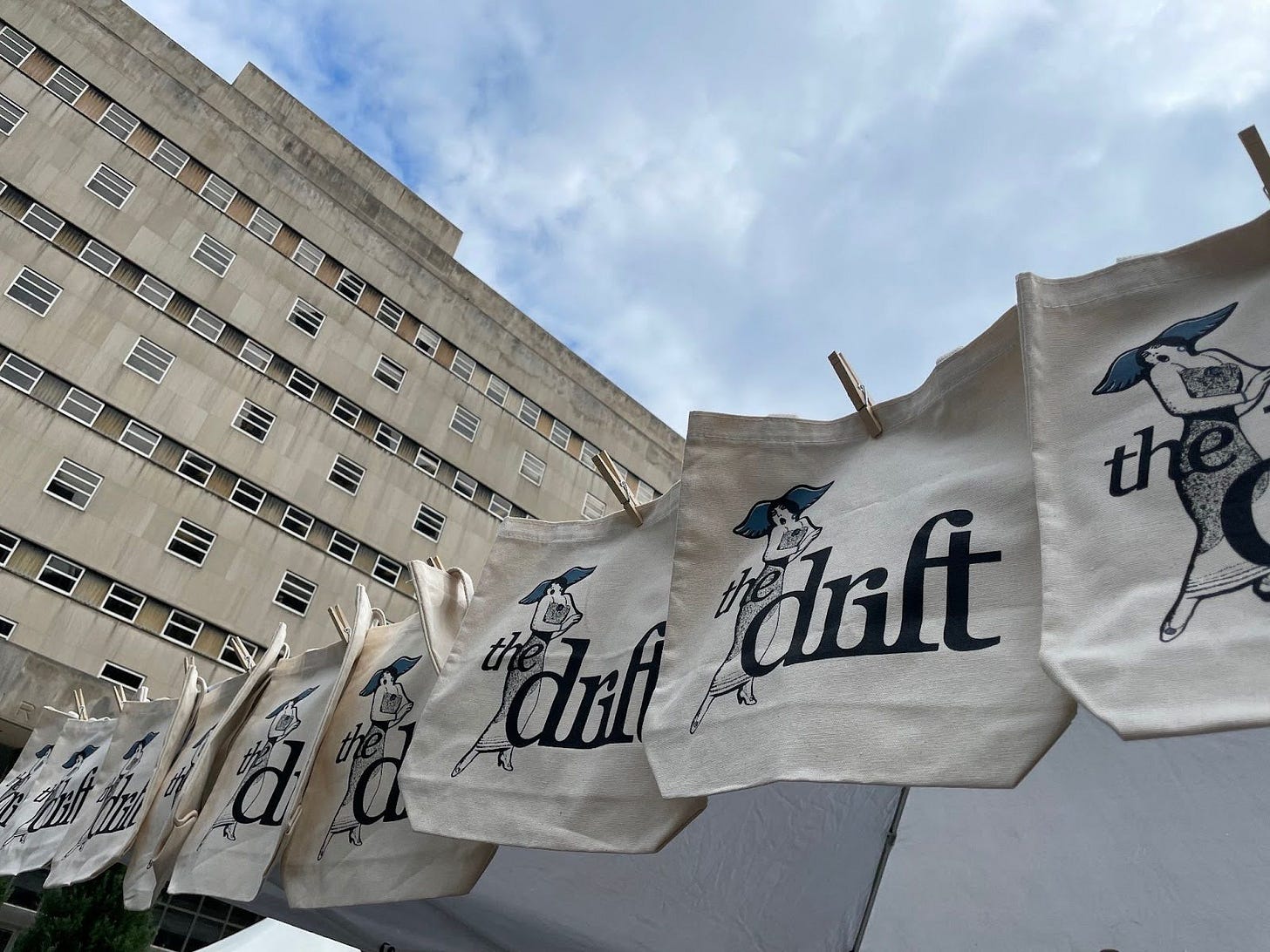Mentioned this week: a copy of a copy of a copy of a copy, and more
Five extremely abbreviated reviews
Widespread online rumors about the demise of Donald Trump proved unfounded on Tuesday, when the man himself emerged, alive and at least apparently unharmed, for an afternoon press conference. Trump explained that his Labor Day weekend was as productive as ever; far from knocking on heaven’s door, he succeeded in posting “a number of Truths, long Truths, and I think pretty poignant Truths.” Our Issue Fifteen Mentions are more concise than the president’s typical social media missives, but in them you will similarly find a number of poignant truths. Read on for the hottest talents of the early 1990s, impotent civil servants, shameless name-dropping, HSK 4 Mandarin, and loud pagan rituals.
Alto Knights
FILM
This new mob feature answers a question only a movie producer would think to ask: what would happen if you tried to make The Irishman without Martin Scorsese? Goodfellas producer Irwin Winkler hired some of the hottest talents of the early 1990s — director Barry Levinson (Rain Man), screenwriter Nicholas Pileggi (also Goodfellas), cinematographer Dante Spinotti (Heat) — and cast Robert De Niro (also Goodfellas, also Heat) to play both Frank Costello and Vito Genovese, the film’s central gangsters. In 1974, when Winkler first bought the rights, this project might’ve been on the cutting edge. In 2025, it’s a copy of a copy of a copy of a copy. The film is an hour shorter than The Irishman, but manages to feel an hour longer. Sometimes the greatest testament to an artist’s skill is how badly things go when they’re not around.
Bradley Babendir
Separated
DOCUMENTARY
Errol Morris managed to make a 93-minute film on the first Trump administration’s child separation policy without interviewing a single person directly affected by it. Instead, he focuses on the internal politics of the Office of Refugee Resettlement, lionizing the impotent civil servants who quietly expressed reservations behind closed doors. The only immigrants we do see — a mother and son crossing the border — are actors, their presence limited to a series of near-silent reenactments. Evidently, Morris saw white bureaucratic minutiae as the heart of the story. I guess I should have turned it off the moment I saw the words “MSNBC Films.”
Michael Kaplan
Anna Karenina on LibriVox
RECORDING
It’s never a bad idea to listen to the more-than-35-hour audiobook of Anna Karenina, but the version put out by LibriVox, a platform where volunteer readers narrate works in the public domain, is especially fun. Chapters are read by different people, and the vastly different levels of competence on display lend a touching, amateurish quality to one of the greatest books ever written. Come for the novel’s deft psychological portraits, stay for the global accents, the shameless name-dropping of several readers’ personal websites, and the staggering variety of ways to pronounce “Karenina.”
S.C. Cornell
Black Tea
FILM
In acclaimed Timbuktu director Abderrahmane Sissako’s latest feature, Aya leaves her unfaithful fiancé at the altar in West Africa for a new, emancipated life in Guangzhou. Here, the “Chocolate City,” so called for its large African émigré population, is scrubbed of complexity: no one speaks Cantonese, but foreigners all know HSK 4 Mandarin; cops are cool; Chinese antiblackness never infringes on the personal lives of the film’s invariably friendly, reasonable characters. Aya’s love interest, who owns the boutique tea shop where she works, dotingly calls her “Black Tea,” a nickname no Chinese person would ever come up with because even Google Translate knows that black tea in Mandarin is “hong cha” (“red tea”). It is not races that fall in love but real people, and unfortunately, Black Tea has none of those.
April Zhu
Moby-Dick at the Met
OPERA
A faithful adaptation of Herman Melville’s whale epic in 2025 would probably lead to a speech by JD Vance blaming wokeness for making Moby-Dick gay. Unfortunately, we won’t get the pleasure of correcting Vance on this one, since the Met’s operatic rendition abandoned the novel’s queer themes, among others, in favor of Ahab’s monomania. In the first scene, instead of seeing Queequeg and Ishmael share a bed in “the most loving and affectionate matter,” we get Queequeg awakening Ishmael with loud pagan rituals from across the hull. The opera seems to disagree with the novel’s claim that there’s “better sleep with a sober cannibal than a drunken Christian.”
John Bohn
Join us September 21 from 10–6 at the Brooklyn Book Festival! You can find us at table 607, right outside Borough Hall. We’ll have issues, discounted merch, and general good cheer available. Stop by to chat and replenish your supply of reading (and wearing) material!





I was mildly surprised (looking at the extended list) to see anyone remembering the 50th year of the first KISS album...OK, by today's bland standards they sound edgy, but back in the actual 70's-and I was there-nobody above the age of 12 took them seriously. A friend of mine and I once turned down the offer of a ride and a joint from a not-quite-cool-enough-to-be-seen-guy we knew because he was riding around with KISS cranking on his car stereo....ZZTop, Black Sabbath, Emerson Lake and Palmer, fine.... but KISS?!? C'mon, even stoners have standards....
.